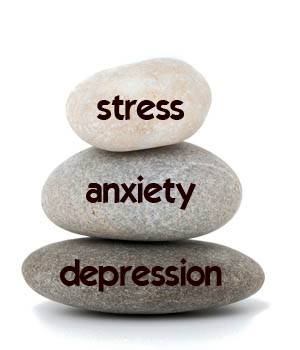Anxiety
What is an anxiety disorder?
While it is normal for individuals to experience anxiety or nervousness, anxiety disorders may cause physical and emotional distress that interfere with a person’s ability to lead a normal life. Anxiety disorders are not personal weaknesses, character flaws or the result of poor upbringing, but real illnesses with real causes.
According to the National Alliance on Mental Illness, over 18% of all Americans are affected by an anxiety disorder. A combination of factors such as changes in the brain, environmental stressors, and genetics can be the causes of an anxiety disorder. Severe or long lasting stress can change brain circuitry functionality that regulates mood. Trauma and significant events may also trigger anxiety disorders in those who inherit the susceptibility to developing an anxiety disorder.
An individual with symptoms of an anxiety disorder is evaluated by a doctor, which includes questions about medical history and a physical exam. There are no lab tests that diagnose anxiety disorders, but a doctor may use various tests to look for physical illnesses that may be causing the symptoms. If there is no physical illness, an individual may be referred to a mental health professional to treat the disorder.

What are the symptoms of an anxiety disorder?
Anxiety disorders are a group of related conditions, such as panic disorders, phobias, generalized anxiety disorder (GAD), or social anxiety disorder, and each has its own set of symptoms. All anxiety disorders do have common symptoms of persistent, excessive fear or worry in situations that are not threatening
Those suffering from an anxiety disorder can experience one or more of the following symptoms:
- Feelings of apprehension or dread
- Feeling tense and jumpy
- Restlessness or irritability
- Expecting the worst and being watchful for signs of danger
- Pounding or racing heart and shortness of breath
- Upset stomach
- Sweating, tremors, and twitches
- Headaches, fatigue, and insomnia
How are Anxiety Disorders Treated?
Mental health professionals use specially designed interview and assessment tools to evaluate for anxiety disorders. Diagnosis is based on the individual’s report of intensity and duration of their symptoms and the doctor’s observation of the individual’s attitude and behavior. A doctor will decide if a specific anxiety disorder causes the symptoms and degree of dysfunction.
Since each anxiety disorder has different symptoms, the exact treatment depends on the type of disorder, but the most common treatment is a combination of medication and psychotherapy.
It is common for someone with an anxiety disorder to have an accompanying diagnosis such as depression or addiction. Anxiety disorders are rarely the sole diagnosis in a person’s mental health history. That’s why it is important to seek help from a trained professional who can accurately diagnose all of the accompanying conditions and prescribe the right course of treatment for you.

